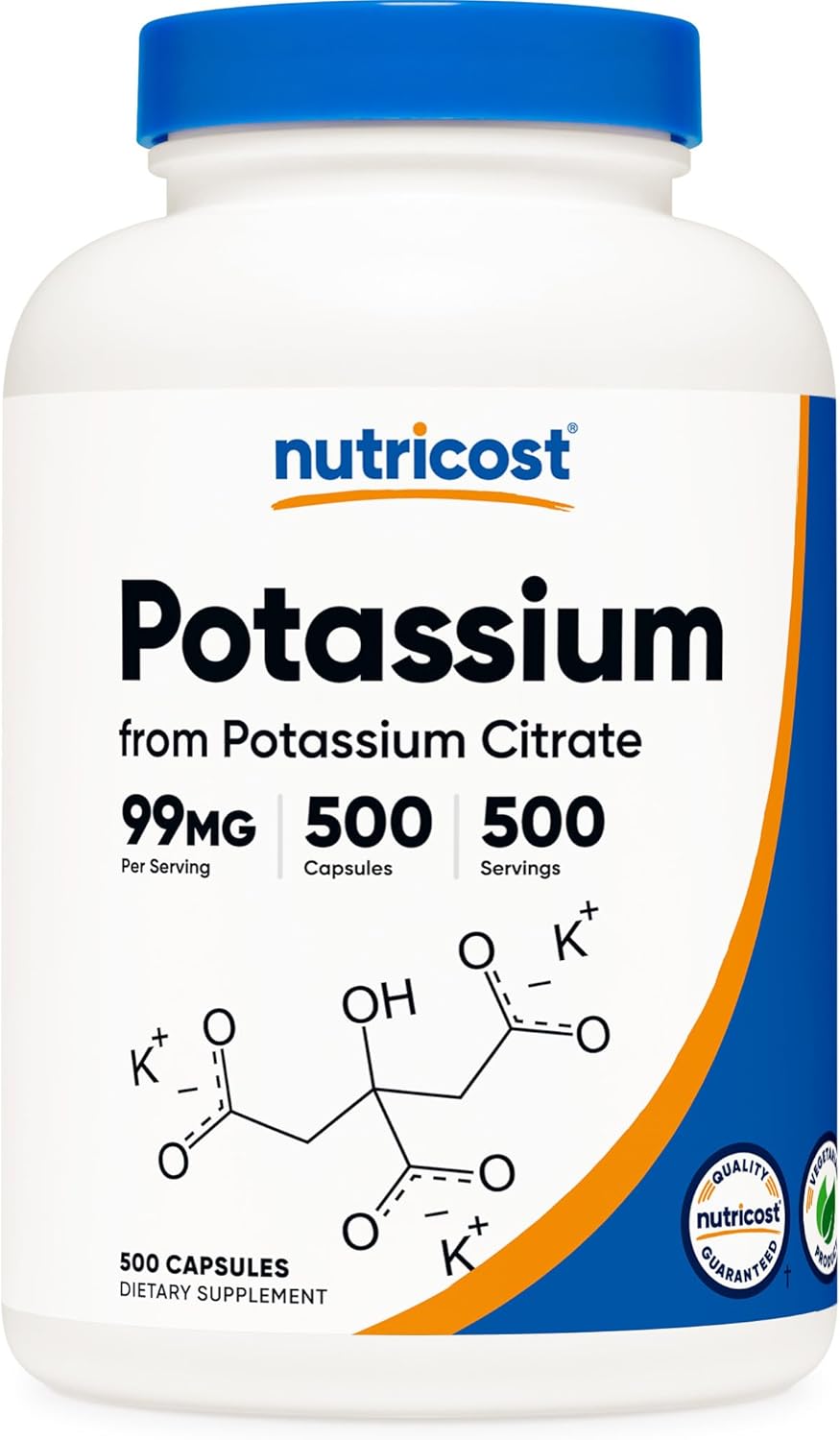
Unlocking the Power of Potassium: Why It’s Essential for Your Health
Introduction
Ever wondered why potassium is often hailed as a super mineral? This powerhouse nutrient does more than just keep your body running smoothly—it’s essential for muscle function, blood pressure regulation, and maintaining a healthy balance of electrolytes. Stick around, and we’ll walk you through the many health benefits of potassium, the best food sources, and how to effortlessly incorporate this crucial mineral into your daily diet.
The Role of Potassium in the Body
Muscle Function
Potassium is a key player in muscle health. It’s vital for muscle contractions, helping your muscles work properly and efficiently. This mineral also helps prevent those annoying muscle cramps that can halt your workout or daily activities. Proper potassium levels ensure that your muscles contract and relax smoothly, keeping you active and pain-free.
Blood Pressure Regulation
Balancing sodium levels in your body is crucial, and potassium plays a significant role here. Adequate potassium intake helps manage hypertension by neutralizing the adverse effects of sodium. This balance helps keep your blood vessels relaxed, promoting better blood flow and reducing the risk of high blood pressure.
Electrolyte Balance
So, what exactly are electrolytes, and why are they important? Simply put, electrolytes are minerals that help regulate fluid balance in your body. Potassium, along with sodium and magnesium, plays a crucial role in this process. This balance is vital for nerve function, muscle contractions, and overall hydration. Maintaining the right electrolyte balance keeps you feeling energized and well-hydrated.
Best Food Sources of Potassium
Fruits and Vegetables
When it comes to potassium-rich foods, fruits and vegetables are your best friends. Bananas, avocados, and sweet potatoes are packed with potassium. Leafy greens like spinach and kale also boast high potassium content. Including these in your meals can provide a natural and delicious way to boost your potassium intake.
Other Potassium-Rich Foods
Beans, legumes, and nuts are excellent sources of potassium. These plant-based foods not only add variety to your diet but also pack a powerful potassium punch. Dairy products like yogurt and milk contribute significantly to your daily potassium intake as well. Incorporating these foods into your meals can help ensure you’re meeting your potassium needs.
Incorporating Potassium into Your Diet
Daily Meal Plans
Looking to add more potassium to your daily meals? Start your day with a potassium-rich breakfast: think a smoothie with bananas and spinach. For lunch, try a salad with avocado and leafy greens. Dinner could be a delicious sweet potato and bean casserole. Meal prepping with potassium-rich foods like these can make it easier to maintain your intake all week long.
Snacks and Smoothies
Quick and easy snacks like a handful of nuts or yogurt with sliced bananas can be great potassium boosters. Smoothies are another fantastic option. Blend some spinach, avocado, and a banana with your favorite milk for a potassium-packed drink. These easy options can help you keep your potassium levels up even on the go.
Product Advertisement: Nutricost Potassium Citrate 99mg, 500 Capsules

Why Choose a Potassium Supplement?
Sometimes, despite our best efforts, it’s hard to get all the potassium we need from food. That’s when a potassium supplement like Nutricost Potassium Citrate can be a game-changer. It’s perfect for those with dietary restrictions, athletes, or anyone needing an extra boost.
Features of Nutricost Potassium Citrate
Nutricost Potassium Citrate offers a maximum serving size of 99mg of potassium per capsule. With 500 capsules per bottle, you’re set for a while! Plus, it’s non-GMO, gluten-free, soy-free, and third-party tested. Made in a GMP-compliant, FDA-registered facility, you can trust its quality and safety. Ready to explore more? Check out the product here.
Conclusion
Key Takeaways
To sum it up, potassium is crucial for muscle function, blood pressure regulation, and maintaining electrolyte balance. The best sources of potassium include fruits, vegetables, beans, legumes, and dairy products. Incorporating these into your diet is simpler than you might think.
Actionable Insights
Take the dietary tips shared here and start incorporating more potassium into your meals today. If you’re struggling to meet your potassium needs, consider Nutricost Potassium Citrate as a reliable supplement option.
Call-to-Action
We’d love to hear from you! Share your favorite potassium-rich recipes in the comments below. Don’t forget to share this post with friends and family who could benefit from these tips. For more information on Nutricost Potassium Citrate, visit the product page and take the next step toward better health!
FAQ
What happens if your potassium is low?
A low potassium level, also known as hypokalemia, can lead to several health issues. Symptoms may include muscle weakness, cramping, twitching, and even paralysis. Abnormal heart rhythms may develop, which could be life-threatening. Typically, low potassium levels are diagnosed through blood tests, and treatment involves consuming potassium-rich foods or taking potassium supplements.
What happens if potassium is high?
High potassium levels, termed hyperkalemia, can be dangerous and affect how your heart’s muscles work. Symptoms may include irregular heartbeats, which in severe cases can lead to a heart attack. If you suspect you have high potassium levels, it’s important to seek immediate medical attention.
What foods are highest in potassium?
Some of the best sources of potassium include apricots, bananas, avocados, and leafy greens like spinach and kale. Root vegetables such as potatoes and sweet potatoes also have high potassium content. Incorporating a variety of these foods into your diet can help you maintain adequate potassium levels.
What drinks are high in potassium?
Several drinks are rich in potassium, including orange juice, prune juice, tomato juice, carrot juice, milk, tea, and coffee. These beverages can be an excellent way to boost your potassium intake throughout the day.



